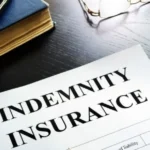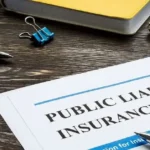Table of Contents
TogglePublic Liability Insurance UK -
Welcome to our blog, where we will explore the important topic of public liability insurance in the UK. Whether you are a business owner, a self-employed professional, or simply curious about this form of insurance, understanding its significance and implications is crucial for protecting yourself, your business, and your financial well-being.
Accidents happen in today’s litigious society, and businesses can face unexpected claims and legal actions. Public liability insurance serves as a safety net, providing coverage for businesses and individuals against claims made by members of the public for personal injury or property damage arising from their business activities. It is a form of insurance that should be carefully considered and seriously considered for anyone engaging with the public.
In this blog series, we will delve into various aspects of public liability insurance in the UK. We will explore what it is, the coverage it provides, and its benefits. We will discuss the types of businesses and individuals who may need public liability insurance and examine real-life case studies to highlight its practical applications. Additionally, we will guide determining appropriate coverage limits, assessing premiums and policy terms, and the steps to take in the event of an incident.
1- Introduction to Public Liability Insurance
Public liability insurance is a vital form of coverage that businesses in the UK should consider. It provides financial protection against claims made by members of the public who have suffered injury or property damage due to your business activities. Whether you run a small retail shop, operate as a contractor, or offer professional services, public liability insurance safeguards your business from the potentially devastating consequences of lawsuits and compensation claims.
Public liability insurance covers the legal costs of defending a claim and any compensation or damages that may be awarded to the claimant. It offers peace of mind, allowing you to focus on running your business without worrying about potential accidents or mishaps leading to costly legal battles.
Accidents and incidents can occur at anytime, even if you take extensive precautions and maintain the highest safety standards. A customer could slip and fall in your store, a client’s property could be damaged during a construction project, or someone could be injured by a faulty product you’ve supplied. In such cases, public liability insurance acts as a safety net, helping to protect your business assets, reputation, and finances.
While public liability insurance is not a legal requirement in the UK, many businesses choose to have it as a fundamental part of their risk management strategy. Some industries or clients may insist that businesses have public liability insurance before engaging in contracts or partnerships. By having this coverage, you demonstrate your commitment to responsible business practices and show that you are prepared to handle unforeseen incidents professionally and responsibly.
2- Understanding the Coverage
Public liability insurance provides coverage for a range of incidents and liabilities that may arise in the course of your business activities. It is important to have a clear understanding of what is covered under your policy to ensure you have adequate protection. Here are some key aspects to consider:
- Bodily Injury: Public liability insurance covers claims made by individuals who have suffered bodily injury or harm due to your business activities. This can include slips, trips, falls, or any other accidents on your business premises or during work at client locations. For example, if a customer slips on a wet floor in your shop and sustains injuries, your public liability insurance would cover the resulting legal costs and any compensation awarded.
- Property Damage: Public liability insurance also covers claims for damage caused to third-party property during your business operations. For instance, if you are a contractor and accidentally damage a client’s property while working on a project, your insurance would cover the cost of repairs or replacement.
- Legal Defense Costs: In case of a claim or lawsuit, public liability insurance covers legal defense costs. This includes fees for hiring lawyers, expert witnesses, and any court-related expenses incurred in defending your case.
- Compensation and Damages: If a claim is successful, and you are found legally liable for the injury or damage suffered by a third party, public liability insurance will cover the compensation or damages awarded. This ensures that you do not have to bear the financial burden personally.
- Medical Expenses: Public liability insurance may also cover the medical expenses incurred by the injured party. This can include costs for immediate medical treatment, ongoing care, or rehabilitation due to the incident.
- Financial Losses: In some cases, a claimant may suffer financial losses due to the incident. Public liability insurance can cover these losses, such as lost wages, loss of business income, or additional expenses incurred directly from the injury or damage.
It is important to note that public liability insurance does not cover all types of risks and liabilities. It typically excludes intentional acts, contractual disputes, professional negligence, and damage to your property or employees. Reviewing your policy carefully and discussing any specific coverage needs or exclusions with your insurance provider is advisable.
3- Who Needs Public Liability Insurance?
Public liability insurance benefits various businesses and individuals who interact with the public or provide services to clients. While it is not a legal requirement in the UK, many businesses choose to have public liability insurance due to the potential risks involved in their operations. Here are some examples of who may need public liability insurance:
- Small Businesses: Small businesses, including shops, restaurants, cafes, and boutiques, can significantly benefit from public liability insurance. It protects them from potential claims if a customer or visitor suffers an injury or property damage on their premises.
- Contractors and Tradespeople: Builders, electricians, plumbers, painters, and other tradespeople should consider public liability insurance. It covers them if their work causes damage to a client’s property or if someone is injured due to their activities. Many clients and contractors require proof of public liability insurance before hiring.
- Service Providers: Professionals who provide services, such as consultants, accountants, IT specialists, and marketing agencies, should consider public liability insurance. It protects them if a client suffers financial loss or other damages due to their advice or service.
- Events and Exhibitions: If you organize events, conferences, trade shows, or exhibitions, public liability insurance is essential. It covers potential accidents, injuries, or damage that may occur during the event, ensuring you are protected against legal claims.
- Freelancers and Self-Employed Individuals: Freelancers and self-employed individuals across various industries, including photographers, graphic designers, writers, and personal trainers, should consider public liability insurance. It provides coverage in case their work causes injury or property damage to clients or members of the public.
- Property Owners and Landlords: Property owners and landlords can benefit from public liability insurance. It protects them if a tenant, visitor, or public member is injured or suffers property damage due to their property’s condition or negligence.
- Tradeshow Exhibitors and Stallholders: If you participate in tradeshows, markets, or fairs, public liability insurance is often a requirement. It covers potential accidents, injuries, or damage caused by your stall or booth.
While this list is not exhaustive, it gives an overview of the types of businesses and individuals who can benefit from public liability insurance. It is crucial to assess the risks associated with your specific business or activities and consult with insurance providers to determine the appropriate coverage for your needs.
4- Benefits of Public Liability Insurance
Public liability insurance offers several significant benefits to businesses and individuals. Here are some key advantages of having public liability insurance:
- Financial Protection: One of the primary benefits of public liability insurance is that it provides financial protection against potential claims and lawsuits. Suppose a member of the public, such as a customer, client, or visitor, suffers an injury or property damage due to your business activities. In that case, the insurance policy will cover the legal costs and any compensation or damages awarded. This helps to safeguard your business assets and prevents significant financial losses that could bankrupt your business.
- Legal Defense Coverage: Public liability insurance also covers the legal defense costs of a claim or lawsuit. Hiring lawyers, obtaining expert advice, and reviewing the court process can be expensive. Insurance ensures that you have the resources to mount a robust legal defense, increasing your chances of a favorable outcome.
- Reputation Protection: When a claim or incident occurs, it can damage your business’s reputation. Public liability insurance provides a safety net, allowing you to handle claims promptly and professionally. By demonstrating that you have insurance coverage in place, you convey a sense of responsibility and reliability to clients, customers, and partners, which can help preserve your business reputation and maintain trust.
- Compliance with Contracts and Requirements: In some cases, public liability insurance is a requirement imposed by clients, contracts, or industry regulations. Having the insurance in place enables you to meet these obligations, ensuring you can enter into contracts and conduct business with peace of mind. It opens up opportunities for collaboration and gives you a competitive edge over businesses that do not have insurance coverage.
- Peace of Mind: Running a business involves inherent risks, and accidents can happen despite taking precautions. Public liability insurance provides peace of mind by mitigating the financial risks associated with accidents, injuries, or property damage. Insurance coverage lets you focus on your core business operations, knowing you have protection against unforeseen events.
- Tailored Coverage: Public liability insurance can be tailored to suit the specific needs of your business. Insurance providers offer various coverage limits and options, allowing you to customize the policy based on the nature of your business, the scale of operations, and potential risks. This ensures you have the right level of coverage without overpaying for unnecessary features.
- Potential Client Attraction: Public liability insurance can be an attractive factor for potential clients or customers. It demonstrates that you take your business seriously and are committed to protecting their interests. Some clients prefer to work with businesses with insurance coverage, giving you a competitive advantage in securing contracts or projects.
5- Determining Coverage Limits
Determining the appropriate coverage limits for your public liability insurance is crucial in ensuring you have adequate protection for your business. The coverage limits represent the maximum amount your insurance policy will pay for any individual claim or a series of related claims. Here are some factors to consider when determining the coverage limits for your public liability insurance:
- Nature of Your Business: The nature of your business plays a significant role in determining the appropriate coverage limits. Consider the type of activities you engage in, the potential risks involved, and the potential severity of injuries or property damage that could occur. For example, a construction company may require higher coverage limits than a small retail store.
- Legal and Contractual Requirements: Review any legal or contractual requirements that may specify minimum coverage limits. Certain industries or contracts may mandate a specific level of coverage to ensure adequate protection for all parties involved. Failing to meet these requirements may result in the loss of business opportunities.
- Potential Losses and Damages: Evaluate the potential financial losses and damages arising from a claim. Consider worst-case scenarios and the potential compensation amounts that the court may award. This analysis can help you determine the coverage limits needed to protect your business assets and finances adequately.
- Industry Standards and Best Practices: Research industry standards and best practices regarding public liability insurance coverage. Speak with peers or industry associations to gain insights into the coverage limits commonly chosen by businesses in your sector. This can help you align your coverage limits with industry expectations and ensure sufficient protection.
- Size and Revenue of Your Business: The size and revenue of your business can influence the appropriate coverage limits. A larger business with higher revenues may require higher coverage limits to protect its greater assets and financial interests. Evaluate the financial capabilities of your business and select coverage limits that align with your risk tolerance and ability to handle potential claims.
- Client Requirements: Consider the requirements of your clients or potential clients. Some clients may specify minimum coverage limits as part of their contract terms. If you aim to work with these clients, ensuring your coverage limits meet their expectations is essential.
- Cost vs. Benefit Analysis: Consider the cost implications of higher coverage limits. While it is crucial to have adequate coverage, it is also important to strike a balance between cost and benefit. Higher coverage limits may result in higher insurance premiums. Assess the cost implications and evaluate the benefits of higher coverage limits against the potential risks to make an informed decision.
6- Assessing Premiums and Policy Terms
When obtaining public liability insurance, assessing the premiums and policy terms is important to ensure you are getting the most value for your coverage. Here are some key factors to consider when assessing premiums and policy terms:
- Coverage Needs: Begin by determining your specific coverage needs. Consider the nature of your business, the potential risks involved, and the coverage limits required to protect your business adequately. Assessing your coverage needs will help you understand the level of protection you require and guide you in selecting the appropriate policy.
- Insurance Providers: Research and compare insurance providers to find reputable companies specializing in public liability insurance. Look for providers with a strong track record, good customer reviews, and a history of reliable claim handling. Consider obtaining quotes from multiple providers to compare premiums and policy terms.
- Premium Factors: Premiums for public liability insurance are determined by various factors, including the size and nature of your business, the industry you operate in, your claims history, the coverage limits selected, and any risk management measures you have in place. Understand how these factors can impact your premiums and consider mitigating risks and potentially reducing your premiums.
- Policy Exclusions and Limitations: Carefully review the policy exclusions and limitations. These are specific situations or types of claims the insurance policy does not cover or imposes restrictions on. Understanding the exclusions and limitations is crucial to ensure you comprehensively understand what is covered and what is not.
- Deductibles/Excess: Determine if the policy includes a deductible or excess. This is the amount you must pay out of pocket before the insurance coverage kicks in. Assess the deductible/excess amount and consider your ability to handle that financial responsibility in case of a claim.
- Policy Limits: Assess the overall policy limits, representing the maximum amount the insurer will pay for any individual claim or a series of related claims. Ensure that the policy limits align with your business’s potential risks and the compensation amounts that could be awarded in the event of a claim.
- Additional Coverages: Consider any additional coverages or endorsements that may benefit your business. Depending on your specific needs, you may explore options such as product liability coverage, professional liability coverage, or employer’s liability insurance. Assess the availability of these coverages and their associated costs.
- Policy Duration: Review the policy duration, ranging from one year to multiple years. Determine the appropriate policy duration based on your business needs and preferences. Remember that longer-term policies may offer certain benefits, such as potential premium discounts or stability in coverage terms.
- Claims Process: Understand the claims process and the insurance provider’s reputation in handling claims. A smooth and efficient claims process is crucial in ensuring that you receive timely assistance and compensation in the event of a covered incident.
- Professional Advice: If needed, consider seeking advice from an insurance broker or consultant who can help you navigate the complexities of assessing premiums and policy terms. They can provide insights, review policy details, and assist you in making informed decisions.
7- How to Select an Insurance Provider
Selecting an insurance provider for your public liability insurance is a crucial decision that requires careful consideration. Here are some steps to help you select the right insurance provider:
- Assess Your Needs: Before selecting an insurance provider, assess your needs and requirements. Understand the nature of your business, the potential risks involved, and the coverage limits you require. This will help you find an insurance provider specializing in public liability insurance that can meet your specific needs.
- Research and Compare: Conduct thorough research to identify reputable insurance providers that offer public liability coverage. Look for providers with a solid reputation, good customer reviews, and strong financial standing. Consider their industry experience, customer service track record, and claims handling process.
- Seek Recommendations: Seek recommendations from other businesses or industry professionals with public liability insurance. Their insights and experiences can provide valuable information to help you make an informed decision. Additionally, consider seeking recommendations from insurance brokers or industry associations that know reliable insurance providers.
- Check Credentials: Verify the credentials and licenses of the insurance providers you are considering. Ensure they are authorized and regulated by the relevant governing bodies. This helps ensure that they meet specific standards and comply with industry regulations.
- Evaluate Coverage Options: Review the coverage options offered by each insurance provider. Assess the specific coverage limits, policy terms, and any additional features or endorsements they offer. Ensure that the coverage options align with your business needs and provide adequate protection.
- Obtain Multiple Quotes: Request quotes from multiple insurance providers to compare premiums and policy terms. Consider coverage limits, deductibles, exclusions, and any discounts or incentives they may offer. Remember that the cheapest option may not always provide the most comprehensive coverage, so evaluate the value you are receiving along with the price.
- Read and Understand the Policy: Carefully read and understand each insurance provider’s policy terms and conditions. Pay attention to exclusions, limitations, and any endorsements affecting your coverage. Contact the insurance provider for clarification if you have any questions or concerns.
- Consider Financial Stability: Assess the financial stability of the insurance provider. Look for information such as their credit ratings and financial reports. A financially stable insurer is more likely to have the resources to pay claims promptly and fulfill their obligations to policyholders.
- Customer Service and Claims Handling: Evaluate the insurance provider’s customer service and claims handling reputation. Look for feedback and reviews from policyholders regarding their experiences with filing claims and the overall level of customer support. Prompt and efficient claims handling is essential during a stressful time, so choose an insurance provider known for their reliable claims process.
- Seek Professional Advice: If needed, consider seeking advice from an insurance broker or consultant. They can assist you in navigating the insurance market, comparing options, and negotiating the best terms on your behalf.
8- Case Studies: Real-Life Examples
Examining real-life case studies can provide valuable insights into public liability insurance’s benefits and practical applications. Here are a few examples showcasing how public liability insurance has helped businesses in various situations:
- Slip and Fall Accident: A retail store owner had public liability insurance in place when a customer slipped on a wet floor and suffered injuries. The insurance covered the customer’s medical expenses and the legal costs associated with the claim. This allowed the store owner to focus on their business operations while the insurance company handled the claim, protecting their finances and reputation.
- Property Damage: A contractor accidentally damaged a client’s property during construction. With public liability insurance, the contractor’s insurance policy covers the cost of repairs to the damaged property. The insurance provided financial relief to the contractor, ensuring they could rectify the situation and maintain a positive relationship with their client.
- Product Liability Claim: A consumer goods manufacturer faced a product liability claim when a faulty product caused harm to a customer. The manufacturer’s public liability insurance covered the legal costs, compensation, and damages awarded to the injured party. Having insurance in place helped the manufacturer mitigate the financial impact of the claim and continue their operations.
- Event Liability: An event organizer held public liability insurance for a large music festival. During the event, a concert-goer sustained injuries due to an equipment malfunction. The insurance covered the medical expenses and compensation, protecting the event organizer from significant financial liabilities and potential legal repercussions.
- Client Property Damage: A cleaning company had public liability insurance when one of its employees accidentally damaged expensive furniture while providing services at a client’s property. The insurance covered repairing or replacing the damaged furniture, ensuring the client was compensated and maintaining a positive relationship between the cleaning company and the client.
These case studies highlight how public liability insurance acts as a safety net, protecting businesses from unexpected incidents, legal claims, and financial losses. With insurance, these businesses could navigate challenging situations, compensate injured parties, and preserve their reputation and financial stability.
9- Steps to Take in Case of an Incident
It is important to take immediate and appropriate action in an incident that may lead to a public liability claim. Here are some steps to consider:
- Ensure Safety and Seek Medical Attention: Prioritize the safety and well-being of anyone involved in the incident. If there are injuries, promptly provide or seek medical assistance for those in need. Take reasonable steps to prevent further harm or damage.
- Document the Incident: Gather information and document the details of the incident. This may include taking photographs of the scene, noting the date, time, and location, and gathering the names and contact information of any witnesses present. Accurate documentation can help support your case during the claims process.
- Notify Your Insurance Provider: Contact your insurance provider as soon as possible to report the incident and initiate the claims process. Provide them with all relevant information and follow any specific procedures they may have for reporting incidents. Prompt notification is crucial to ensure a smooth claims process and compliance with policy requirements.
- Preserve Evidence: Preserve any evidence related to the incident. This includes preserving damaged property or equipment, keeping records of conversations or interactions with individuals involved, and retaining any documentation or paperwork associated with the incident. This evidence can support your case and demonstrate your commitment to resolving the matter.
- Cooperate with Investigations: If there are investigations or inquiries related to the incident, cooperate fully with the relevant authorities or agencies. This may include providing statements, sharing information, or allowing access to the premises. Cooperating in a timely and transparent manner can help expedite the resolution process.
- Communicate with the Claimant: If a claimant comes forward with a complaint or claim, communicate professionally and empathetically. Gather all relevant details from the claimant and avoid admitting fault or making promises without consulting your insurance provider. Refer the claimant to your insurance company for further discussions and claim handling.
- Maintain Records and Communications: Keep thorough records of all interactions, correspondence, and communications related to the incident and the claim. This includes emails, letters, phone conversations, and other relevant documentation. These records indicate your efforts to address the situation and may be helpful during the claims process.
- Seek Legal Advice if Necessary: In more complex or severe cases, consider seeking legal advice from a professional specializing in public liability claims. They can provide guidance, review your situation, and help protect your rights and interests throughout the process.
- Review and Cooperate with Your Insurance Provider: Stay in close contact with your insurance provider throughout the claims process. Follow their instructions, provide requested information promptly, and cooperate fully to facilitate a smooth resolution. Understand the coverage provided by your policy and seek clarification from your insurer if you have any questions or concerns.
- Learn from the Incident: After the incident and the claims process are resolved, take the opportunity to learn from the experience. Review your risk management practices, identify areas for improvement, and consider implementing measures to prevent similar incidents.
Conclusion -
In conclusion, public liability insurance is a valuable form of coverage for businesses and individuals in the UK. It offers financial protection against claims and lawsuits made by members of the public for injury or property damage caused by your business activities. While not legally required in the UK, public liability insurance is often a crucial safeguard to mitigate potential risks and liabilities.
By having public liability insurance, you can benefit from financial protection, coverage for legal defense costs, and peace of mind knowing that you have support in the event of an incident. It lets you focus on running your business while your insurance provider handles claims and compensations.
When selecting public liability insurance, carefully assess your coverage needs, compare quotes and policy terms from reputable providers, and consider factors such as industry requirements, coverage limits, and the provider’s reputation for claims handling. Regularly review and reassess your insurance coverage to ensure it aligns with your evolving business needs.
By understanding the coverage, benefits, and steps to take in case of an incident, you can make informed decisions regarding public liability insurance. It is recommended to consult with insurance professionals or brokers who can provide expert guidance tailored to your specific business requirements.
Public liability insurance serves as a safety net, providing financial protection and helping to safeguard your business’s assets, reputation, and long-term success. Investing in this coverage lets you focus on growing your business with confidence, knowing that you are protected against potential liabilities and legal claims.
FAQs about Public Liability Insurance –
Q: What is public liability insurance?
Ans- Public liability insurance covers businesses and individuals against claims made by third parties for personal injury or property damage arising from their business activities.
Q: Is public liability insurance a legal requirement in the UK?
Ans- Public liability insurance is not a legal requirement in the UK. However, some industries or contracts may require businesses to have public liability insurance as a condition of working with them.
Q: What does public liability insurance cover?
Ans- Public liability insurance covers legal costs, compensation, and damages associated with claims made by members of the public for injury or property damage caused by your business activities.
Q: How much public liability insurance do I need?
Ans- The amount of public liability insurance you need depends on factors such as the nature of your business, potential risks, and industry standards. It is important to assess your needs and consult insurance providers or brokers to determine the appropriate coverage limits.
Q: Can public liability insurance cover legal defense costs?
Ans- Public liability insurance typically covers legal defense costs if a claim or lawsuit is filed against you. This includes fees for hiring lawyers, expert witnesses, and any court-related expenses incurred in defending your case.
Q: Can public liability insurance cover product liability ?
Ans- Public liability insurance may cover product liability if included in the policy or if you add product liability coverage to your insurance. However, reviewing your policy and discussing this with your insurance provider is essential.
Q: What is the claims process for public liability insurance?
Ans- The claims process for public liability insurance typically involves reporting the incident to your insurance provider, providing necessary documentation and information, and cooperating with the insurer throughout the investigation and resolution. The specifics of the claims process may vary between insurance providers.
Q: Can public liability insurance cover work-related injuries to employees?
Ans- No, public liability insurance explicitly covers claims made by third parties, such as members of the public or clients. Work-related injuries to employees are typically covered by employer’s liability insurance, a separate type of insurance.
Q: Can public liability insurance be purchased as a standalone policy?
Ans- Yes, public liability insurance can be purchased as a standalone policy. However, some insurers may offer it as part of a broader business insurance package, including other coverages such as property or employer’s liability insurance.
Q: How can I find the right public liability insurance provider?
Ans- To find the right public liability insurance provider, research reputable insurers, compare quotes and policy terms, consider recommendations from peers or industry associations, and assess their experience, financial stability, and customer service reputation. Working with an insurance broker or consultant can help you navigate the market and find the best provider for your needs.











